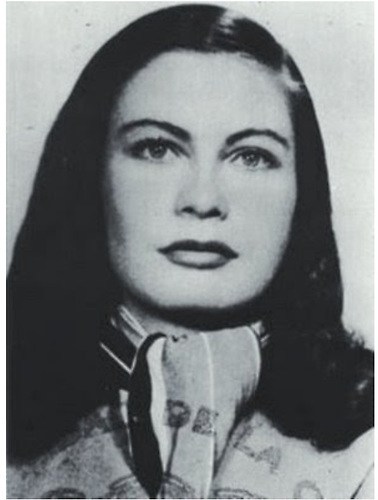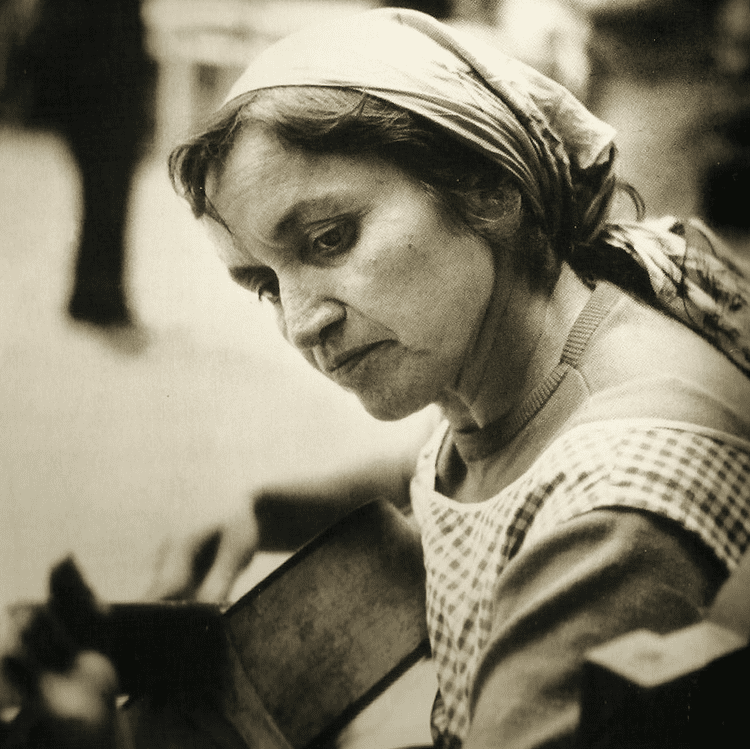“Through their work they’d brought back
– from “Flood the World with Beauty,” American Poetry Review
knowledge that speaks to us in difficult times —
that poetry is a long conversation with wise
friends over time, a kind of justice, a kind of
peace. . . . They never knew they had done that.”
Sharon Mesmer teaches at New York University and The New School. She is a poet, prose writer and essayist. Her poetry collections include Greetings From My Girlie Leisure Place (Bloof Books, 2015), Annoying Diabetic Bitch (Combo Books, 2008), The Virgin Formica (Hanging Loose Press, 2008), Vertigo Seeks Affinities (chapbook, Belladonna Books, 2007), Half Angel, Half Lunch (Hard Press, 1998) and Crossing Second Avenue (chapbook, ABJ Press, Tokyo, 1997). Her fiction collections are Ma Vie à Yonago (Hachette Littératures, Paris, in French translation, 2005), In Ordinary Time (Hanging Loose Press, 2005) and The Empty Quarter (Hanging Loose Press, 2005). Four poems appear in Postmodern American Poetry: A Norton Anthology (second edition, 2013). Her essays, reviews and interviews have appeared in the New York Times, New York Magazine/The Cut, American Poetry Review, Paris Review, Poetry, the Wall Street Journal, and the Brooklyn Rail, among others. Her awards include a Fulbright Specialist teaching grant (2011), a Jerome Foundation/SASE award (as mentor to poet Elisabeth Workman, 2009) and two New York Foundation for the Arts fellowships in poetry (2007 and 1999).
Talia Aharoni interviewed Sharon Mesmer by Zoom on March 23rd, 2020. Both were sheltering in place due to COVID-19; Talia in Manhattan, New York, and Sharon in Brooklyn.
Talia: In an article you wrote for American Poetry Review, you talk about discovering under-known female poets whose work inspired your manuscript-in-progress. How did it all begin?
Sharon: I was at AWP, and I was having a breakdown. That year, it was in Minneapolis, and I have a very good friend there, and we decided to go and support each other. I stopped at the book fair, specifically looking for presses that do translations. I approached the Tavern Books table, and I picked up this advanced copy of a book by Eunice Odio, and it was unbelievable. Something about her caught my attention, so I googled her on the spot, and this incredible, beautiful face came up. The book was called The Fire’s Journey, and it was this incredible creation story. Really, nobody’s writing like this anymore—a combination of Dickinson, Whitman, and Blake all together. I really like Spanish language poetry, especially in the original; you can hear those vowels working, and it’s so musical and intense. So I went home and started doing research on Odio because I was going to write an article for American Poetry Review called “The Creation of Herself: Eunice Odio’s mytho-poetics.” But there was hardly anything online about her, so I found a book called Twentieth Century Latin-American Poetry: A Bilingual Anthology, and I bought it. Odio was in there, as were many others—but I was particularly interested in the women.

As I was going through this book and reading about these women, I realized almost every single one of them had a horrible backstory. Delmira Augustini is one of the oldest poets in that anthology; she lived between the 19th and early 20th century. Her poetry was unbelievable, exploring depression and hopelessness—it could have been written yesterday. I did some research on her and learned she died in a murder-suicide with her ex-husband at the age of 27. And then Alfonsina Storni, who lived in Argentina but actually was Swiss-Italian, just walked into the sea. Eunice Odio herself was an alcoholic, and died alone, only to be discovered three days later. They were all writing through all these tribulations, and at the time, they really acted as guides for me. I saw in them a lot of strength and beauty. They worked through all of their hardship, sometimes writing about it, sometimes around it, sometimes not accessing it at all, and just writing really beautiful work. I started writing these poems dedicated to them, and it just spiraled. I keep going back to their work and seeking out their faces. They’re like guideposts for me.
Talia: They seem to be mostly from the Americas, is that right? Have you branched out since then?
Sharon: So far, these poets are mainly from Uruguay, Chile, Argentina, El Salvador, Brazil, Puerto Rico, Canada, the U.S., Cuba, Venezuela, Peru, and the Dominican Republic. I could have branched out further, but then there would be so many people, it would be unmanageable. I thought, because I’m an American, I’ll just limit it to the Americas. But there are more, of course, in many other countries.
I feel that the debt I had to repay was for their instruction. Even though I never knew most of these women, I had access to their work, their struggles, their examples.
Talia: You also mentioned that you teach a lot of these under-known poets to your students. What’s the added value of teaching these types of writers in a writing program, versus the well-known ones?
Sharon: I think it shows students different ways of writing, and different topics to write about. For me, it was important to showcase writers who wrote through their issues. By issues, I mean a whole range of things. Internal issues, but also cultural issues. Eunice Odio was from Costa Rica, and she could get no traction in her home country with her writing. So she went to Mexico and started publishing there. Now she’s very popular in her own country, but that didn’t really happen until The Fire’s Journey was published. The value is to show students different ways of expression, because if you limit yourself to work published here, you’re doing yourself a disservice. I have students who say, “I want to write, but I don’t like to read.” You have to read, read, read, and not limit yourself to only what you know. There’s so much interesting work that’s done in other countries, and my students don’t normally see that. I also find that these writers take a lot more chances, for instance, with form. In both my fiction and my poetry workshops, we use forms instead of prompts. We’ll use a benediction poem, or a Fibonacci poem or story, or a cut-up. If you have ideas, you can flow them into forms; you can write about anything. The form is a constraint, but constraints are good, as they help you to move out.
I also like to expose my students to antecedents of flash-fiction and micro-fiction. Like, vignettes from China from the 1600s. The Pillow Book by Sei Shonagon, which was written in the 900s. I really do try to give them a historical trajectory for some of the things they may think that the Americans or the French invented—because they didn’t.
Talia: There’s also such an emphasis in writing programs on a certain notion of success. These poets didn’t receive much recognition during their lives, and yet their work is still worth reading.
Sharon: Yes, there is a lot of emphasis on success of a certain kind, and I want to show my students great work that people produce because they want to produce it, and not because they’ve got a book contract waiting. Sometimes it’s better not to have a book contract waiting because then you have a freedom, and you can adhere to your own vision. Later, when you get success, you have to revisit what that vision was. I always found that when one of my books got a positive review, I started thinking, “Oh, I should keep doing that.” But then you’re like a trained monkey, doing what somebody liked. And there will be a whole bunch of people that don’t like it. You have to stay in a middle ground, where you’re producing work that you like.
Talia: Do you have tips for teachers and students, how to go about discovering such writers? What have been some of the most effective tools and resources for you?
Sharon: First of all, I might not have even known about any of these women if I hadn’t had a breakdown and was struggling at AWP. I forced myself to go, because I thought I might find something there, and I did. Beyond that, if you google “small press translations,” you’ll find so much, it’s really at your fingertips. It’s like a breadcrumb trail. You find one writer, you see who their translator was, and who that person translated. Go to readings—virtual ones, of course, these days. Often translators do readings. The Brooklyn Rail always has translations, and so does The Paris Review. A magazine like Little Star has a lot of material from other countries. Archipelago Books always publishes translations. They’re everywhere, really. You just have to look for them.
Talia: I love the part in the article you wrote where you said you felt you had a debt to repay. Can you explain what you mean by that?
Sharon: I feel that now more than ever. Some of these women were my friends. Two of them were women I knew personally, and one of them was Allen Ginsberg’s last girlfriend. Her name was Elise Cowen. Allen was my teacher, and he was always recommending her to me, and showing me little snippets of her work, but her poetry was not that widely available. A collection of her poetry was finally published eight years ago.
I feel that the debt I had to repay was for their instruction. Even though I never knew most of these women, I had access to their work, their struggles, their examples. They might not have had the support and encouragement that I had in my career—from my teachers, etc. Some of them had very little encouragement, but they continued to pursue their visions. I’ve learned from that, and I want to pay that back.
Talia: Are you still dedicating your work to these poets?
Sharon: Yes. There are 35 women, and I’ve done maybe 16 poems so far. It takes a while because of the research and trying to get the “voices” right. So that I’m not imitating them, but still accessing their subject matter and themes. I want to finish it; it will be my next manuscript. I look at Twentieth Century Latin-American Poetry: A Bilingual Anthology every time I want to write a poem for one of these women. I go online, print their picture, and tape it into the book, right next to their poem. I actually take this out, and I look at it. I look at their faces, and whenever I’m going to write about one of them for the first time, I really just look at them. And like I said, two of them I knew personally. The one who was my best-friend is turning out to be the hardest to write the poem for. I’ve written one and it’s about to be published, but it’s not what I want to say to her.
Talia: How do you think these writers have influenced how you write?
Sharon: They made me get more honest about emotions and life experience. Twenty-fifth generation language poetry and the New York School of poetry—these are still about the relation of words on a page, and the field of experience bounded by the text, and that’s great, but these women were writing from extreme experience. It was non-academic. I don’t want to say it wasn’t intellectual, but it wasn’t intellectualized. Delmira Agustini, for instance, was part of a literary movement in Uruguay in the late 19th century that was highly influenced by the French Symbolists. It’s hard to find new and compelling ways to write about emotion without sounding drippy and self-indulgent. The ways that these women wrote were extraordinarily surprising.
The value is to show students different ways of expression, because if you limit yourself to work published here, you’re doing yourself a disservice.
Talia: Do they affect your process, as well?
Sharon: Oh, yes. Once I find them and read them, I can almost hear their voices in my head. Here’s an example. I started a poem inspired by Marcia Nardi, who is mainly known for her letters to William Carlos Williams. She wanted him to help her—she was very talented, but also needy. She had a son and she always needed money, and Williams was trying to help her. I wrote a poem inspired by her, and I didn’t like it, so I put it aside. And I kept getting these twinges to go back to it; I really felt like she wanted me to write a poem for her. It was really odd. And while I was writing for and about Elise Cowen, I felt like she was talking to me, telling me things about Allen. It sounds so woo-woo.
Talia: Have there been instances where you were really stuck on a poem?

Sharon: I wrote something for Violeta Parra, but it didn’t work, so I’m still working on it. Parra was mainly a songwriter, but her songs are poems, really. I knew about her brother, Nicanor Parra, because Allen told me to read his work. I never knew he had this incredible sister. She wrote this song called “Gracias a la Vida”—thanks to life, in which she shows gratitude for all these seemingly disparate, unrelated things. And she wrote it right before she killed herself. The lyrics read like a poem. She was the first Latin-American woman to have a one-woman show at the Louvre. She made these tapestries and she started a performance space called “the Queen’s Tent” in what is today the La Reina municipality of Santiago. But it was located out in the countryside, and not many people could get to it, so she didn’t find a lot of success. She killed herself in that performance space. It’s heavy. Sometimes I really have to back off of some of this, because it’s too much. But the work is just beautiful.
Talia: I’d like to turn to recent events, and the global COVID-19 pandemic. You mentioned over e-mail that the work of these women has become even more resonant in recent weeks. What do you think we can learn from their legacies in these trying times?
Sharon: So many people, writers included, are focused on getting what they want, and being successful, and accomplishing things. These women were writing beautiful work when they didn’t have any of that. I think that you can find beauty in hardship. Observing how people deal with and write about hardship and suffering is going to be really important. Life doesn’t have to be giving you gifts all the time, and it won’t. I think Americans sometimes find that hard to accept. It’s a terrible thing that’s happening, but there will be great work coming out of it. There’s so much you can do when you just sit still. And learning about these women is one thing that you can do when you sit still.
Also in the magazine: “Poems Without Borders: Writing to Bear Witness” by Merna Ann Hecht
Talia Aharoni is a writer living in NYC. She completed an MFA at the New School with a focus in fiction, and is the recipient of the Provost’s scholarship and the 2019-2020 T&W Collaborative Editorial Fellowship. She serves as an Editorial Intern at One Story literary magazine, and editorial assistant for LIT magazine. She’s at work on her debut novel.




One response to “Knowledge that Speaks in Difficult Times”
[…] “Knowledge That Speaks In Difficult Times” — in Teachers & Writers Magazine:https://teachersandwritersmagazine.org/knowledge-that-speaks-in-difficult-times-an-interview-with-sh… […]